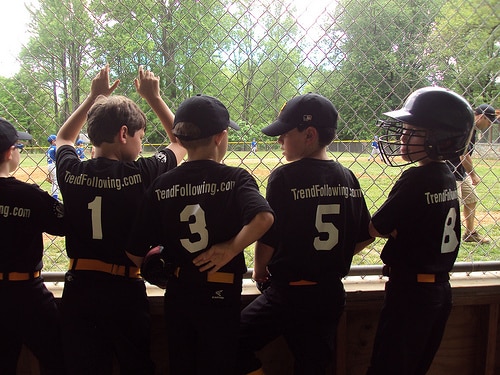Moving your child into officially organised team sports can be extremely challenging both mentally and physically. A team will often pick on its weakest link to blame any poor results or performances. How do you know when your child is ready to cope?
Team sports are essential for children
There are many advantages to be gained from children participating in team sports. Children quickly learn that they are not the complete centre of attention and that they must consider the actions of all of their teammates as well as the opposition. Even though some superstar children may develop skills much quicker than the majority, if they are playing in a weak team, their abilities may be wasted if they refuse to perform with and within their team.
Team sports provide children with the opportunity to learn and understand how to operate within an environment that must consider all of the other members. This will help improve a feeling of classroom togetherness in their early years, enjoying how it feels to represent their school against others and then later in life, with understanding team goals within the business atmosphere.
Team sports also show young students how they can value both practising their own individual skills and within their team as well as the challenge of performing in a competition, at whatever level that is held.
Despite a mentality across team sports in the UK that playing in teamwork is adequate in itself, any child will tell you that winning a medal and holding a cup feels better within a team environment.
Is your child ready?
Many children are frightened and worried about joining a team sport because they may be shy, not understand the rules properly or feel that they are about to enter an unsafe environment. The parent’s open and positive attitude can provide a reassuring guidance for any child, but if your child is not ready, pushing them into something they don’t want to do will not help anyone, let alone the team.
Some children dislike structures and by introducing them to a team sport you can provide them with a life skill. Every parent or guardian will know how your child feels about these issues and at some stage children may need a little more encouragement to give them confidence to participate for their own good.
When a child participates in a team sport, they will not wish to be the worst player in the team. Their overall fitness will be improved by regularly participating in a team sport, but they will lose interest rapidly if they are not even fit enough to participate in basic training skills.
The majority of team sports begin around the ages of 6 to 7. Before that, many children have not learnt the skills of taking turns and being able to understand the rules of a game. Catching and kicking skills rapidly improve around these ages.
It is better for children to try a variety of sports to see which they are going to enjoy, rather than being coaxed into a particular sport because the parent enjoys it the most.
Parents need to be aware of a child’s personality and by including them within the decision-making process of choosing a sport and the team; it also allows the child to seize the ability to leave the team sport if they are completely set against it, after having tried it.
Team sports teach children about working well with their peers, but the overall system of parents trying to offer too much match advice may be sufficient to turn a child off a sport, for life.















